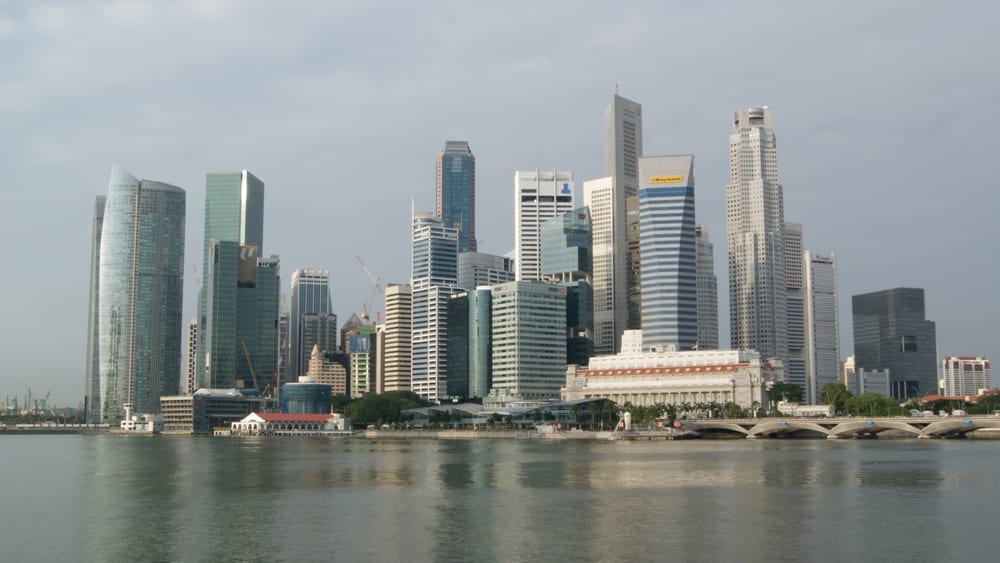Is a Recession Coming?

Investors befuddled by Singapore’s recent precipitous plunge into bear market territory recently may be right in thinking that stocks are pointing towards the ominous R word, for recession. Bank of America Merrill Lynch in a report out today tries to make sense of all the brouhaha in the asset market, as well as take a deep dive into some of the leading indicators.
The investment bank’s Asean economist, Chua Hak Bin, believes Singapore likely slipped into a technical recession in the July-to-September third quarter.
“Singapore, being a small economy, may be a useful recession barometer for the rest of Asia,” writes in the report. The island-republic’s total trade, including re-exports, is more than three times its GDP and, as such, very sensitive to external demand, he notes.
During the tech recession in 2001 and the 2008/09 global financial crisis, Singapore was one of the first few countries, alongside trade-dependent economies such as Taiwan and Hong Kong, that fell into recession.
Because Singapore is often the first economy in Asia to release a flash GDP estimate, Chua argues it can be a leading indicator of what lies two to six weeks ahead for the rest of Asia.
He notes that during the global financial crisis, after Singapore slipped into a recession in 3Q2008, Malaysia, India, Thailand and the Philippines followed suit one to two quarters later. Indonesia and South Korea saw one quarter of negative q-o-q growth. China’s growth moderated but did not contract.
“We think Singapore likely slipped into a technical recession — defined as two consecutive quarters of q-o-q contraction — in 3Q, ” Chua says in his note. “Besides Singapore, Taiwan and Japan may also have slipped into a technical recession in 3Q.”
Chua notes that Macau, whose casinos have seen revenues decline sharply over the past year, is already in recession.
Singapore will release its flash 3Q estimate in the second week of this month, together with its biannual monetary policy decision. Bank of America Merrill Lynch expects 3Q GDP growth to show a 1% year-on-year growth, but a contraction of 0.9% on a q-o-q seasonally adjusted annualised basis.
“We expect the Monetary Authority of Singapore to ease its monetary policy, shifting the Singapore dollar nominal effective exchange rate policy band to a neutral or zero bias (from a weak appreciation) and recentre the S$NEER to the weaker side of the band.
“We are currently projecting a shallow recession, but are concerned that the downturn may deepen in the coming months, ” Chua’s note says.
Chua also expects 4Q2015 to be the worst quarter, but a sharper China slowdown and the extent of Fed rate hikes later this year could hurt growth and push forward the trough till 1H2016.
“The risk of recession and a sharper downturn is also rising for the rest of Asia, in our view, especially (for) commodity exporters (such as) Malaysia, and Indonesia and countries sensitive to China’s slowdown, (like) Hong Kong, Taiwan and Korea.”
Chua notes that excluding China, emerging Asia’s GDP growth eased to 4.2% y-o-y in 2Q2015, down from 4.8% in 2Q, and the slowest since 202012. It believes that near-term global recession risks are higher than usual, with a 23% chance of a recession-like slump this year.
As an investment bank Merrill is among the more downbeat on emerging markets, but expects GDP growth in emerging economies to hold at above-trend pace in the largest developed economies.
Singapore entered into bear market territory two weeks ago and is currently down 22% from its recent highs. The Singapore dollar has depreciated about 8.3% against the US dollar from its peak.
Chua says China’s slowdown, weaker growth in the immediate neighbourhood (of Malaysia, Indonesia and Thailand) and stricter foreign labour policies are hurting Singapore’s growth, particularly in manufacturing and exports.
The Straits Times Index selloff and bear market, so far, is worse than the 2003 SARS downturn, but is still far less severe than the 2001 tech recession (when it fell 40% over 30 weeks) and the 1985 recession (when it fell 32% over 35 weeks).
This article first appeared in The Edge Singapore Market Report.



